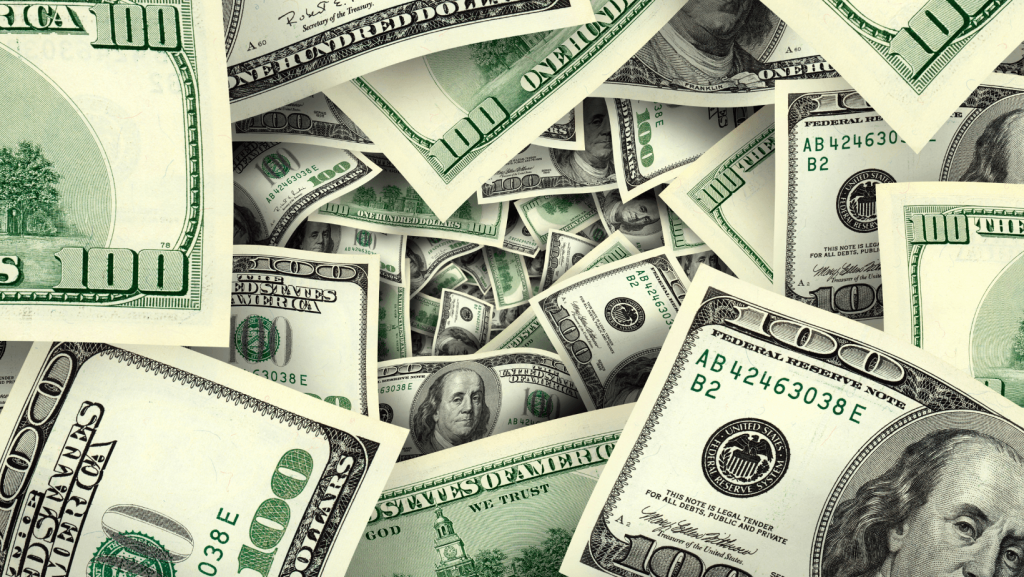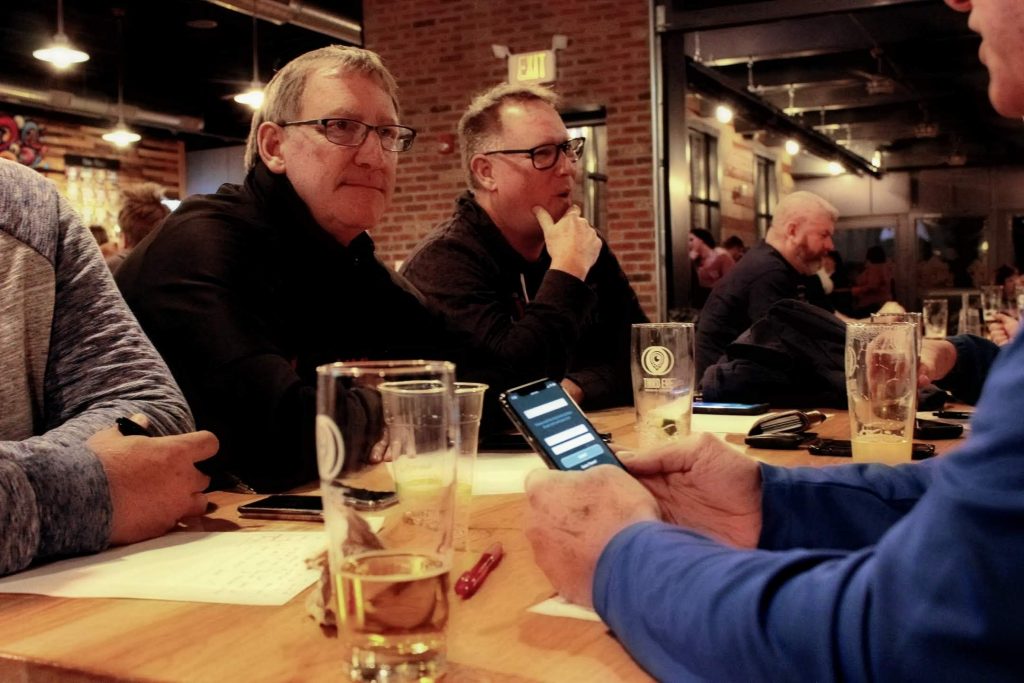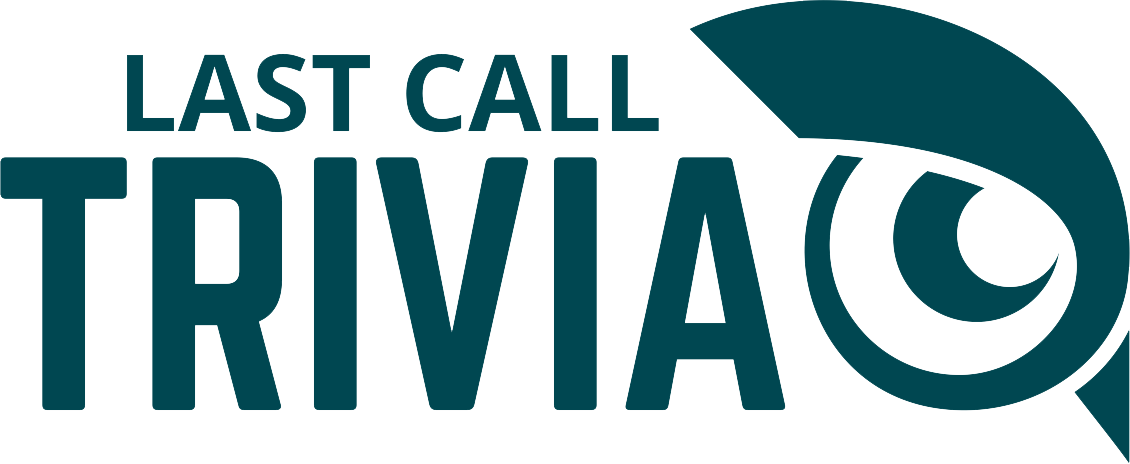When starting a Trivia Night side hustle, one question you may have is, “How can I structure my rates to maximize my profit?” This is a critical point, since the ultimate goal is to scale your business up to make as much money as possible.
There are several factors to consider when setting the price of a venue’s Trivia Night, including seating capacity, local competitors, level of customization, etc. While you can establish a “standard rate,” that you expect to charge for most locations, bar owners may wish to negotiate the price. With that in mind, below are 5 suggestions for structuring and negotiating rates with your future clients.

Sliding Scale
As you start your Trivia Night side hustle, it is essential to establish legitimacy in order for your clients to trust you and the value that your service will bring.
One way to ease the minds of your new clients and show your dedication to creating a partnership is to establish a sliding scale pay structure for your first few venues. This way, the client has a lower risk upfront, as it allows them to increase their payments as word spreads about their Trivia Night and the audience builds.
Let’s say, for example, that your standard rate is $150 per Trivia Night. Rather than charging this rate immediately, negotiate a sliding scale with your client, so they pay $100 the first week, $110 the second week, $120 the third week, $130 the fourth week, $140 the fifth week, and $150 the sixth week and on.
Creating a sliding scale for your clients displays your willingness to be a businesses partner, and your dedication to helping the bar generate a profit off of their Trivia Night.

Multi-Venue/Multi-Night Discounts
Creating a relationship and establishing trust with your client is one of the most difficult parts of building your business, especially at the start when your brand is not well known.
With that being said, if you have a client (or a prospective client) that owns several bars, offering them a multi-venue discount is a great way to secure additional steady revenue while nurturing one relationship. In the same vein, if one of your venues is considering adding a second Trivia Night during the week, offer them a discounted multi-night rate.
Let’s say, for example, your standard rate is $175 per Trivia Night. If the owner of the bar adds a second Trivia Night either at the same bar, or another location that they own, offer them a rate of $160 for each location. Based on the number of nights they are considering, you could offer to discount the rate further.
Offering multi-night and multi-venue discounts allows Trivia companies to increase revenue with a client that already trusts them and their service.

Negotiate Based on Venue Size/Potential Business
Trivia Nights can be found in all types of venues, from tiny dive bars to gigantic breweries. The size and clientele of each venue has a bearing on how much a bar owner can realistically expect to profit from a Trivia Night.
When negotiating rates with your clients, be sure to consider the venue size (and potential sales) and factor that in to your pricing model.
Let’s say, for example, your standard rate is $200 per Trivia Night. If you are negotiating with the owner of a small bar that only has seating for 20 people and does not offer a food menu, take that in to consideration when determining your price. Offer them a rate of $150, so they are more likely to turn a profit. Be sure to build a time frame for this rate (say, 6 weeks at $150), to retain the ability to increase the price to your standard rate if the show does experience increased success in the future.
On the other hand, maybe you are negotiating with a brewery that expects to regularly have 100+ players for their shows. Given the amount of profit the location can make from their Trivia Night, and the additional resources you may need in order to successfully run such a show, be sure to negotiate their rate accordingly. Maybe you plan to bring an assistant to keep track of scores, additional sound equipment to play to the larger crowd, and more materials for the large number of players. Rather than your regular rate of $200, offer a rate of $400 for this location.
Trivia companies must consider the potential profit that a venue can reasonably expect to make, and negotiate rates accordingly.

Referral Offers
As previously mentioned, one of the most difficult, and most important steps to build your business is to establish trust with your current and potential clients.
Once you have built a successful Trivia Night for a client, don’t be shy about asking them to refer you to their friends in the industry. A referral from a friend can go a long way towards showing a potential client that your service is valuable.
Offering a free show serves as a thank you for their support and positive referral, and encourages your clients to continue spreading the word about your business.

Rates Based on Turnout
Sometimes the uncertainty of player turnout will scare a bar owner away from signing on for a Trivia Night. If their crowds tend to fluctuate, they may consider the risk to be too high.
If a Sliding Scale isn’t enough to convince the owner to take the leap and trust that the crowds will come, consider offering them a fluctuating rate based on the turnout for each show.
Say, for example, your standard rate is $150 per Trivia Night. If a prospective client is hesitant to commit because of the uncertainty of turnout, offer them a fluctuating rate based on the number of players. If less than 10 players participate charge $100, if between 10 and 20 players participate charge $125, if between 20 and 40 players participate charge $150, if between 40 and 60 players participate charge $175, if between 60 and 80 players participate, charge them $200, and so on.
Offering rates based on turnout makes it easier for a bar to turn a profit off of their Trivia Night regardless of how many players show up on a given night. It also gives you the ability to charge a higher rate if your Trivia Night draws a huge crowd.
Building trust and establishing legitimacy are critical components to growing Trivia companies. Bar owners are mindful of where they spend their money, so consider using the above suggestions for negotiating prices, especially as you are starting out. This will allow you to build your brand and establish yourself as a partner to your clients, which will exponentially increase your opportunities and income. In other words, take this advice straight to the bank.

